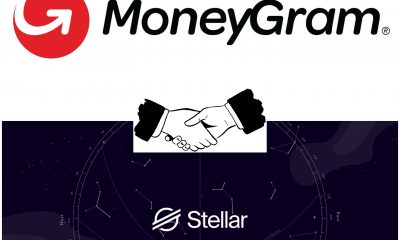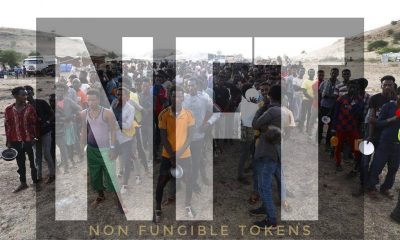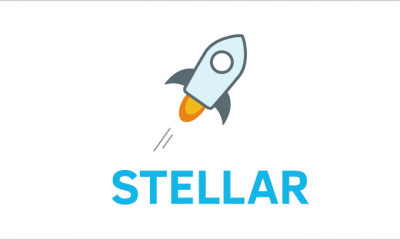News
Ethiopian Companies Introduce Blockchain to Coffee Supply

The blockchain technology has been adopted by two coffee exporting companies in Ethiopia. Bext360 and Moyee have joined forces together to tackle the problem of exporting unprocessed coffee. These companies want to address the issue of transparency that is lacking in the agricultural business.
Despite making $866 million from the export of coffee in the last fiscal year, there is a discrepancy between earnings of the farmers and the products exported. Also the country exports coffee to Europe after they undergo the hulling process without roasting and packaging them. The country could earn as much as $2.7 billion if they roast and brand the coffee themselves. Co-founder of Moyee, Shane Reilly says “This shouldn’t be any different for coffee growing countries like Ethiopia and Uganda. Blockchain removes the middle man and encourages trust because consumers know exactly what they are drinking, and where it has come from.”
More Revenue For Ethiopia
Moyee is proposing a game changer with a roastery in Addis Ababa where most of the coffee being roasted in Europe can be roasted by local employees and registered on the FairChain platform reducing the bulk of the 99.9 percent of the coffee that is being roasted in Europe. While Bext360 has partnered with a washing station in the Jimma Region of Oromia. They are building a platform that allows for transactions to be monitored in real-time with coffee farmers who take their cherries to sell at Oromia. The plan is to build a chain where the farmers information and identity which is available online will tally with the kilos of coffee they brought to the station and the prices the farmers will be paid.
Blockchain in Coffee Making
Introducing the blockchain into this process means that for each stage on the supply chain, the farmers will be assigned crypto tokens that will show the complete value added from bean to barista. Everything from payments to roasting to freighting to pricing will be registered on the blockchain-based platform, FairChain. To get farmers started on better wages, Moyee will pay farmers a 20 percent premium which Moyee’s Co-Founder, Guido van considers; “This is the next big step in a coffee revolution.”
“Our platform changes things entirely. Crypto tokens enable us to pay farmers immediately and directly. Smart technology is being used to benefit the men and women who produce our coffee,” he added.
The blockchain platform Moyee and Bext360 are using was created by Stellar. Farmers will be compensated for their produce as the process will be duly registered. McCaleb explains, “Coffee cultivators load their daily haul, usually about 30 kilograms, into a machine equipped with sensors and optical recognition tech that sifts and sorts coffee cherries. This automated appraiser assigns each a grade based on quality (bigger and riper is generally better). The machine then links this output to special crypto tokens tracking the produce across its journey.”
Ethiopia accounts for approximately 3 percent of the global coffee market with 20 million people relying on it for their livelihood. The country which has its traditions deeply rooted in coffee production receives about 15 percent of the value in a bag of beans. While the price of the commodity increases, the country receives lesser share from the proceeds. This new partnership will ensure that the coffee transition can be monitored from farm to table.
Do you think this will help other agriculture sectors across Africa? Share your opinion with us in the comments section below.
Image Credit: HowAfrica.com
Disclaimer:
The Information provided on the website is designed to provide helpful information regarding cryptocurrency subjects. The content is not meant to be used, nor should it be used as a basis, foundational knowledge or prerequisite for decision making regards trading. Always do your own research and due diligence before placing a trade. We are not liable for any outcome based on any content found on the site.
























